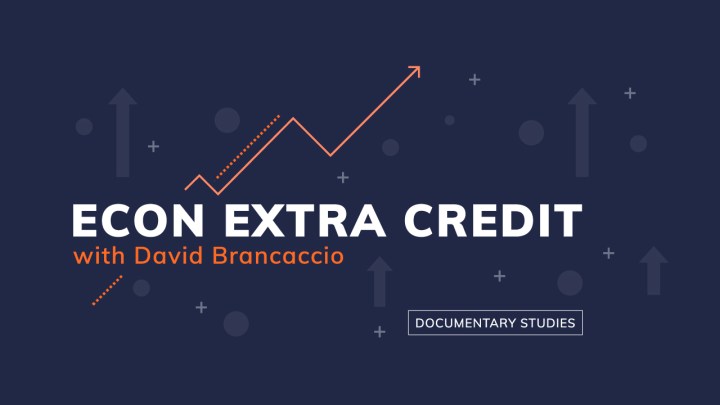
How long would it take to sit down, open a cloth napkin and, with the precision of a surgeon, eat a pair of sunny side up eggs piled high with shaved truffle? In this month’s Econ Extra Credit movie, we learn the answer.
“The Truffle Hunters” shows us, seemingly in real time, a truffle connoisseur’s meal, start to finish. If you like the film, the scene will seem about four minutes long. If you don’t like the film, the scene will seem to run about two hours.
It is a film about the fascinating world of the people (and their dogs) who forage for the prized but difficult-to-find knot of fungus that can add an earthy zest to a meal. The best truffles are very expensive. For some truffle varieties, something egg-sized is like a monthly car payment at the wholesale level. A chunk of Tuber magnatum (white truffle) at retail? Fuhgeddaboudit.
In several shadowy scenes, a truffle buyer is seen talking price with a truffle hunter. It’s not the haggling that stayed with me — bargaining over price is common to many markets. What is striking is that the seller doesn’t seem sure about the going rate for his bounty. He could be getting low-balled by the truffle broker. The market’s opaque, reminding me of a time I went to the jewelry market in Los Angeles to find some tiny rubies as a gift; I had no idea if they were real rubies, nor what a real or fake ruby should go for.
Economics calls this “asymmetrical information,” where one party in a transaction knows a lot more about a deal than the other. The uncertainty can mean one side of the deal could take advantage of the other. Or it can mean a buyer might pay less for something that is actually worth more because the buyer can’t be sure how good the item is. In 2001, University of California Berkeley economist George Akerlof won a Nobel Prize in economics for working to understand these asymmetries. Akerlof studied the market for second-hand cars; the seller of a used car may know whether or not they’re selling a dud with a transmission held together with chewing gum. Buyers can’t be totally sure they’re not getting a lemon. If the car is good, the worry about getting a crummy car still can lower what the buyer is willing to pay. With these market defects, inefficiencies and abuse can abound.
The Italian truffle market as seen in the movie may also reflect a fading era at a time of technological change. We know that farmers in parts of sub-Saharan Africa operating in opaque markets for agricultural goods were victimized by buyers because market prices were hard to nail down in rural areas. Tech has since come into play, with services that text market prices to farmers, meaning farmers with mobile phones can now laugh at the middlemen who fail to offer the going rate. Production is also changing. U.S. firms are learning to cultivate decent truffles so lovers of the stuff won’t have to wait for the dogs to score in the forest. That may not bring down the cost of the rarest of naturally foraged truffles, but it might mean mere mortals will get a chance to enjoy the flavor.
– David
“The Truffle Hunters” is available for a fee on several streaming platforms. Do let us know what you thought of the documentary: extracredit@marketplace.org. We’ll feature your responses in our next newsletter.
There’s a lot happening in the world. Through it all, Marketplace is here for you.
You rely on Marketplace to break down the world’s events and tell you how it affects you in a fact-based, approachable way. We rely on your financial support to keep making that possible.
Your donation today powers the independent journalism that you rely on. For just $5/month, you can help sustain Marketplace so we can keep reporting on the things that matter to you.












